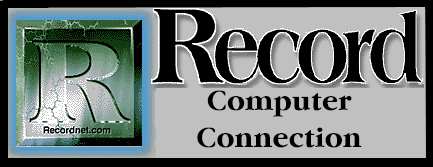

It seems like just yesterday I was recommending to you the latest guidelines and specifications for purchasing your new computer system. ("Jump in...the water's fine", October 3, 1994).Well, purge that article from your archives as it now officially obsolete. At the pace this industry is moving, the present article will be obsolete before it's tossed on your doorstep.
For under $2,000 you can buy twice the system today the same dollars could purchase 18 months ago. The players are essentially the same, though their names and numbers have been changed and updated to reflect one thing...more speed and more power.
CPU (Central Processing Unit or computer chip), CPU speed, memory and hard disk are still the essential ingredients of your computer system. Additional components such as the modem, video card, CD-ROM and bus are more critical now that the industry is heavily bent toward multimedia applications and the information superhighway.
The Pentium (586) computer chip is now the CPU of choice. It has been around for a couple of years, but only recently affordable to the masses since its price tag has dropped considerably. The Central Processing Unit is the brain which controls your computer's operations. As with the previous 486 generation chip, the Pentium chip comes in a variety of speeds: 60, 75, 90, 100 and 120MHz. The faster the chip, the more expensive the system. The chip speed you choose will generally depend on the intensity of the computing tasks you perform.
When considering a hard disk and memory size, one rule still holds true: Buy as much as you can afford. Memory, or RAM, is your active, electronic working space. 8MB RAM is now considered minimum and 16MB is recommended. Additionally, a new computer system should come with a "cache" of at least 256K of super-fast memory.
A hard disk is the magnetic storage medium for programs and data. 540MB is the minimum hard disk size you should consider and 1GB is recommended due to the voracious demand for disk space by today's applications. A full installation of DOS, Windows and just one business "suite" can sap 125MB of disk space before you ever install any fluff or fun.
When researching a new system, pay attention to the term "bus". This refers to the communication path between your CPU and other components that you might want to add such as scanner or sound card. The PCI bus was developed for the Pentium chip and is quickly becoming the vehicle of choice. Industry experts recommend "PCI only" especially for compatibility with Windows 95 Plug & Play features.
A new monitor should be at least 15 inches, flat or full view screen with an accompanying 1MB video card (2MB is recommended). A multimedia system should include a quad-speed CD-ROM drive and a 16-bit sound card that is Sound Blaster compatible. Your modem should be fast: 28.8 with fax capabilities. If your home or business has ISDN phone connections, your modem needs will be different (Refer to article May 8, 1995: "Time to toss old Modem").
How much computer you need to purchase really depends on how you use your system. Word processing and spreadsheet applications require less muscle than graphics and multimedia programs, so if your work is pretty much text and numbers a Pentium 75 with 8- 16MB RAM and a 540MB hard disk should be your minimum system configuration. If, however, your activities include graphics, presentations, CAD, OLE 2.0 activities, or 3-D imaging a Pentium 90 or 100 with 16-32MB of RAM, a 1GB hard disk, and a CD-ROM drive should be included in your system specifications.
If your budget is tight, the 486DX2 and 486DX4 chips are great buys right now as long as you don't skimp on memory and hard disk size. Some industry analysts feel that a 486DX4 CPU runs just as fast as a Pentium 90 with the same memory.
The "minimum" configurations discussed here are really plenty for today's computing needs.
The "recommended" options are for a system that will be more than adequate for the future ... or
at least until October.
Feedback? E-Mail cschuler@ceeprompt.com